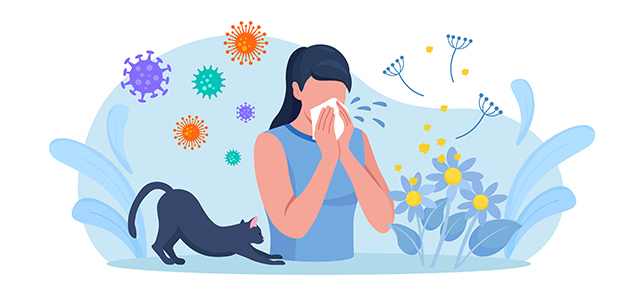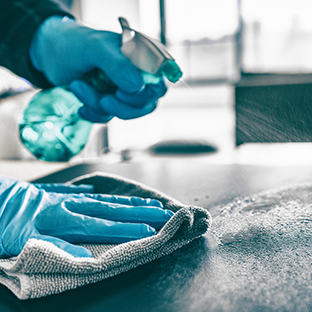The effectiveness of HEPA filters on air purification
Create some engaging blog posts to keep highlighting the importance of the Panasonic products tailored to various situations.
Table of Contents
- Air is more contaminated than you think
- How air purifiers can be effective
- HEPA filter
- Requirements of a HEPA filter
- How it works
- How to clean the HEPA filter
- Benefits of having an air purifier installed with HEPA filter
- Effective against virus, bacteria and fungi
- Effectively decreases harmful viruses and bacteria
- Other benefits
- Conclusion
Air is more contaminated than you think

We can’t always see what can hurt us. Even something as intimate as the air we breathe can be filled with harmful contaminants. Pollution. Allergens. Mould. Viruses. Bacteria. Poor-quality air can be filled with these, all of which can affect our health. And even though we might clean our homes until they are pristine, we can’t clean the air with sprays and cleaning chemicals. So, what do we do? Luckily, technology can help in the form of an air purifier.
How air purifiers can be effective
An air purifier cleans the air for you. It removes nasty contaminants like pollutants, moulds, allergens and viruses, leaving fresh, pristine air to fill your lungs. One of the factors we need to consider when taking care of our health is our environment. It’s something that’s often overlooked, but it’s vital to our health. An air purifier helps ensure that your environment is conducive to your physical well-being – cleaning what you can’t clean yourself. But what is the best air purifier? Some of the best types of air purifiers have a HEPA filter.
HEPA filter
What is a HEPA filter? HEPA filters are made of synthetic materials or glass, and are one of the main pieces of technology that help clean the air. And what does HEPA stand for? “High-efficiency particulate air”. As its name suggests, a HEPA filter is very effective at trapping different-sized particles. This is incredibly useful when it comes to the particles that make up pollutants, moulds, allergens, bacteria and viruses – since they’re different sizes*1.
But not all air purifiers have these filters. Being such a high standard, HEPA filters meet very particular requirements.
Requirements of a HEPA filter
They need to filter out at least 99.95% of particles to be able to qualify as HEPA filters. Any less than that, and they qualify as different filter categories such as EPA. EPA filters are efficient, but not as efficient as HEPA filters.
How it works
A HEPA filter stops different-sized particles in various ways. Large particles are too big to pass through the gaps in the filter, so they get stuck. Smaller particles (things like bacteria, for example) get stuck to the fibres of the filter, preventing them from passing through.
And the smallest particles are caught via diffusion – being so small, they zoom around in zig-zagging movements instead of passing straight through the gaps in the filter, so they eventually get stuck in the filter’s fibres too.
HEPA filters are very effective and can even capture nanoparticles. That’s why they can remove 99.95% of particles from the air. But does the HEPA filter always stay this effective? Does it need any maintenance or cleaning?
How to clean the HEPA filter
After some time, the filter collects debris; if it isn’t cleaned or replaced, then it won’t be able to trap as many particles. Which means that your air purifier won’t be functioning at the high standard that it should. We recommend cleaning HEPA filters around twice a month. But be careful not to clean them with water*2.
You can clean the front side of the filter with a vacuum cleaner. Be careful not to apply too much pressure, since it’s very delicate. And you don’t need to clean the back of the filter.
*1 https://smartairfilters.com/en/blog/what-is-hepa-filter-how-hepa-air-filter-work
*2 https://www.panasonic.com/my/consumer/air-solutions/air-purifier/air-purifier-learn/quick-tips/air-purifier-tips-cleaningplacement
Benefits of having an air purifier installed with HEPA filter
A HEPA filtered air purifier can protect you from a variety of contaminants.
1. Effective against viruses, bacteria, and fungi
Viruses
Viruses are harmful microbes that cannot live by themselves, but need a ‘host’ to survive. They cause infections and illnesses ranging from the common cold through to COVID-19. Viruses can be passed on through direct or indirect contact – even through contaminating the air. Moisture droplets that contain the virus are expelled into the air by talking, coughing or sneezing. You can rest easy knowing that HEPA filtered air purifiers can catch virus particles, which include the coronavirus*3.
Bacteria
Bacteria are living organisms that can reproduce by themselves. Our body is filled with friendly bacteria that keep us healthy and help with the day-to-day functioning of our bodies. But there are also some forms of bacteria that are harmful to our health. They can cause various illnesses and infections, especially in people that have a compromised immune system. These bacteria not only live on surfaces around the home, but can also linger in the air. HEPA filters can trap bacteria particles, creating a healthy atmosphere for you and your family*4.
Fungi
These are organisms that reproduce by producing spores – like mushrooms, for example. Fungi are present both indoors and outdoors. Some forms of fungi can be harmful and can cause fungal infections. Mould is also a variety of fungi which can negatively impact our health. Mould releases spores into the air which you can breathe in. This makes people who are sensitive or allergic to these spores ill. Symptoms include a runny or blocked nose, eye irritation, coughing and sneezing*5. Since mould grows in moist areas that aren’t properly ventilated, air purifiers can be an effective solution.
*3 https://news.columbia.edu/news/do-hepa-filters-really-catch-coronavirus-particles
*4 https://www.panasonic.com/my/nanoe/all/how-nanoe-works/bacteria-viruses
*5 https://www.health.nsw.gov.au/environment/factsheets/Pages/mould.aspx
2. Effectively decreases harmful viruses and bacteria that can cause bad health
Allergies

Watery eyes, itchiness, sneezing and coughing are often due to a reaction from the immune system to certain allergens that float in the air including:
- Pollen
- Animal dander
- Fungal spores
- Insects and dust mites
Air purifiers with HEPA filters capture particles floating around the air that contain these allergens, reducing the possibility of an allergic reaction*6.
Asthma
Asthmatics can feel anxious in environments filled with pollutants, dust, pollen and mould spores, since these can trigger an asthma attack. That’s why it’s all the more important for them to be able to relax in a home that’s free of these contaminants. Thankfully, these triggers are also trapped in HEPA filters*7. Installing a HEPA filter can therefore be very beneficial for the overall health of an asthmatic person.
Cold or flu
These illnesses are caused by viruses and can contaminate the air in a room – unless they’re trapped in an air purifier with a HEPA filter. This will create a healthy space to breathe without these viruses lurking in the air.
*6 https://www.verywellhealth.com/airborne-allergies-5204794
*7 https://www.asthma.org.uk/about/media/news/the-truth-about-air-purifiers-filters-and-humidifiers
3. Other benefits
Better sleep
A good night’s sleep is essential for your wellbeing, but it can be hard to come by – especially if you’re disturbed by irritants that cause allergies, or bacteria and viruses that make you ill. With an air purifier, you’ll sleep soundly knowing that you’ve got greater protection against these, and have a better chance of enjoying undisturbed sleep. As a bonus, the gentle sounds of the purifier will lull you to a peaceful slumber*8.
Conclusion
HEPA filters in air purifiers are effective at removing particles of contaminants that could bring harm to you or your family. But there is a limitation to HEPA filters. While they can clean the air, they are not very good at cleaning surfaces. And the problem with that is that viruses and bacteria hide on surfaces such as doorknobs, sofas and TV remotes.
nanoe™ X air purifiers can be an easy solution since they clean both the air and surfaces. They release naturally occurring hydroxyl radicals into the air which effectively disarm certain contaminants – whether lurking on surfaces or airborne. It is a standard of air purification that is as capable as HEPA filters, especially in terms of surface cleaning, to provide you with true peace of mind.








